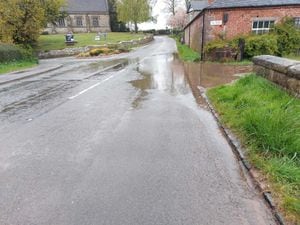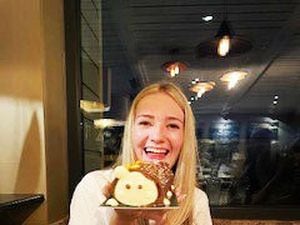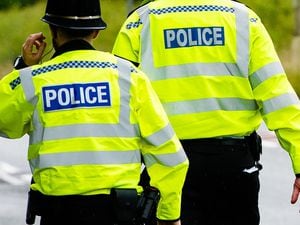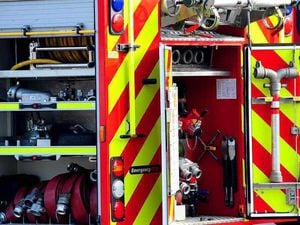When Fred met Vera - and how she's now sent him a new signed photo
Fred Holding and his comrades held a raffle to decide who got to stand closest to Vera Lynn during a visit to their camp in the Second World War.
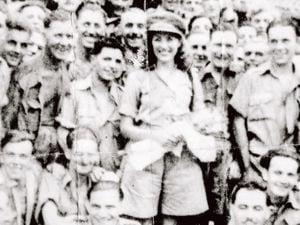
The now 98-year-old, who lives near Market Drayton, still treasures his battered black and white photograph of him standing next to the Forces’ Sweetheart - and now he has a new up-to-date signed photo of the singer to add to it.
“She was beautiful,” he said. “She was a lovely woman.
“She wanted to sing but her agent wouldn’t let her, so she stayed and had a chat. We were glad to see her anyway.”
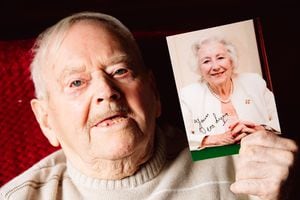
It was only small talk – ‘how was he coping?’ – but the moment stayed with the father-of-four forever.
And the photo came back to light as part of a documentary about the We’ll Meet Again singer’s life aired last year.
Fred spotted himself during a programme celebrating her 100th birthday, and friends managed to get in touch with the singer to get a new, signed photograph sent to Fred.
“She sent the signed picture to me,” he said. “It feels marvellous, like it’s given me new life.”
Fred was only 20 years old when he volunteered to join the Army and was in the Royal Leicester Regiment.
He’d been told that as a member of the Ministry of Transport, he wouldn’t have to go.
But he was ready to volunteer and do his bit for the war effort.
He travelled from Liverpool to Bombay which took 11 weeks, also stopping in Cape Town on the way.
He said: “We were the biggest convoy to leave Liverpool.
Taj Mahal
“There were 42 ships, two of which got blown up, so we had to zig zag the whole way instead of going in a straight line.”
The unit had to march up and down the town in Bombay to shake off their sea legs, but there was still time to take the occasional break.
“I had my picture taken outside the Taj Mahal,” Fred said.
Fred had to train for jungle warfare, a year of difficult work.
“After Bombay we got on another boat and landed in Sri Lanka and we did 12 months jungle training there,” Fred said.
“For six weeks, we had to turn night into day. We couldn’t shout, we could only talk at the weekend.
Compasses
“It was so that we could get used to talking in the jungle.”
The unit were told to hide compasses in their shoe heels and small saws behind their ribbons and badges to help them in case they were captured by the Japanese.
Fred came away with four medals from the Army which he still cherishes now.
Upon returning to the UK, Fred decided to pursue his love for boxing.
He had been training before the war and travelled to fairgrounds all over the country.
“I beat the flyweight champion at the time, I was very quick, in the Army they put me in with the heavyweights to sharpen them up.
“When I first started boxing it was before the war, I was only 16 and I boxed seven times in one night, when the boxing club manager asked me if I could join his team.”
After finishing the Army and Territorial Army, he spent 25 years delivering coal from house to house.
“I could carry two 56-pound weights above my head and scales that were made of iron,” he said.
“People would stand by the wall and watch me.”

